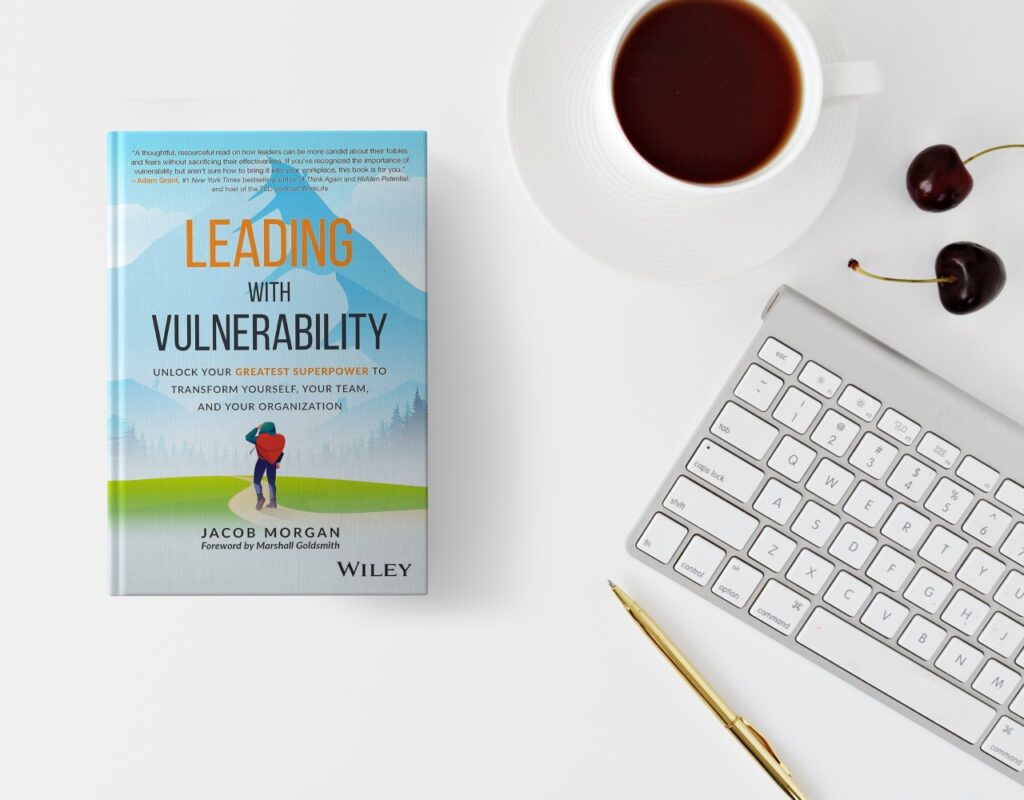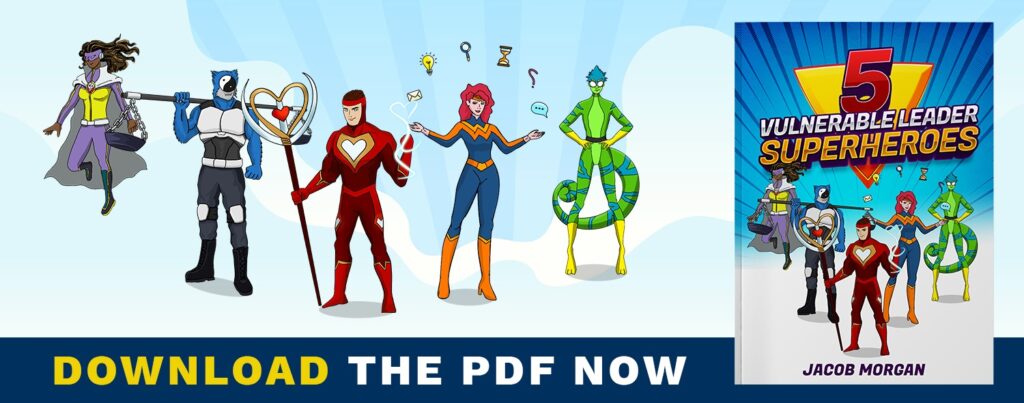The following post first appeared for premium members of Great Leadership On Substack several months ago if you want to get access to premium articles, leadership insights, and research delivered straight to your inbox, you can subscribe here.
What you’re about to read is from my new book, Leading With Vulnerability. It’s actually one of the sections that had to get edited out due to length but I still wanted to share it with you since it’s so important to our understanding of trust and leadership.
Human relationships are complicated but at the very foundation of a good relationship is trust. It’s a powerful force that can bridge divides, unlock the potential of others, lead to amazing discoveries, and transform teams, organizations, and societies. Yet at the same time, when trust doesn’t exist, chaos reigns.
Employees won’t share their ideas or support each other, they will hoard information, engage in backstabbing and office politics, they won’t do their best to serve customers, and the culture becomes toxic. You wouldn’t want to be in a relationship where you don’t trust your parter so why would you want to work for an organization where you don’t your peers and your leaders? You wouldn’t.
Do you trust others? Do you think others trust you?

Many of us our cynical when it comes to trusting others but is this cynicism warranted? To answer that we turn to the field of psychology and trust games.
The Trust Game
In 2010 Dr. Detlef Fetchenhauer of the University of Cologne and Dr. David Dunning (who I interviewed for my latest book) from the University of Michigan dove head first into the area of human behavior and trust. Their findings were startling to say the least.
Let’s say I give you $10 and I present you with a choice, you can either keep the money or give it to someone else. If you give it to someone else, that $10 now becomes $40. The person who you gave the money to will now have a choice as well:, they can either keep that $40 or they can split it with you and now you will each have $20. Would you give the money to the other person and trust that they will then split the larger pot with you?
These types of trust games have been used for several years in psychology and economics and it’s these types of trust games that Dr.’s Fetchenhauer, Dunning, and many others, have been experimenting with for many years. All of these experiments show the same conclusion which says a lot about how we trust others and how others trust us.
In their study, they found that roughly half of the participants believed that the person they gave the money to would be trustworthy (and, hence, split the larger pot back with them). Think about that for a moment, this is the equivalent of deciding to trust someone based on a coin flip.
In reality though, over 80% of the people ended up sharing the larger pot.
This means that there is a massive 30% gap between how trustworthy we think people are versus how trustworthy people actually are or said another way, we underestimate the trustworthiness of others by 30% and those us around us underestimate our trustworthiness by the same.
Our tendency to underestimate trustworthiness might be rooted in evolutionary psychology. After all, being wary of strangers or potential threats could be considered a crucial trait for survival. Even though our world has changed, this built in skepticism has stayed with us over the years. It’s also true that we tend to remember negative experiences much more than positive ones. Even if we have trusted others and the outcome was positive, we tend to focus on the few times when trusting someone yielded a negative result. A single betrayal can overshadow many positive experiences.
This is a problem because it means that if you are cynical and assume you can’t trust someone, then you won’t be vulnerable with them. If you are not vulnerable with them, then they will never have the chance to disprove your assumption that they are not trustworthy. As Dr. Dunning told me, “you will never get the chance for the optimistic correction if you always assume you can’t be vulnerable and trust others.”
Does this mean you will never get burned? Certainly not, in fact at some point in your life you probably will have a vulnerability used against you in a professional setting. But that’s not different from anything else in life. You will get turned down from a job opportunity, you will get turned down by someone you want to ask out, and you will miss out on all sorts of opportunities and chances in life, but we all know that.
This tendency to be skeptical can have profound implications. If we approach relationships with cynicism, assuming others are untrustworthy, we shield ourselves from vulnerability. By doing so, we deny others the opportunity to prove their trustworthiness. As Dr. Dunning aptly put it, “Without taking the risk of vulnerability, we miss out on the chance of an optimistic correction.”
It’s a bit like that Dr. Seuss story, Green Eggs And Ham where Sam keeps saying how much he hates green eggs and ham even though he never tried them. Then finally when he does try them he loves them.
The point is that instead of assuming you CAN’T trust others, it’s a better idea to assume that you CAN.
…
What kind of a leader are you? There are 5 types of vulnerable leaders, each with their own unique strengths and weaknesses. Knowing what kind of leader you are helps you determine who you should work with, the types of projects you should work on, and how you deal with challenges and opportunities. In my new book, Leading With Vulnerability, I interviewed over 100 CEOs around the world and surveyed nearly 14,000 employees in partnership with DDI.

Comments